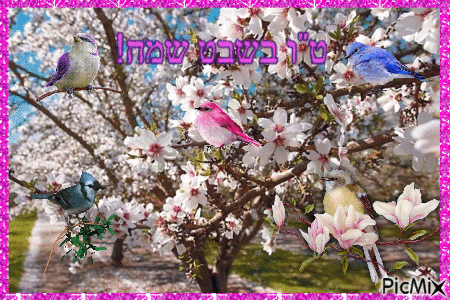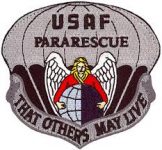Sabbath Rest: Joy Or Burden?
I have heard excuses for not keeping the Sabbath (Shabbat) from various angles. One that seems to express itself from time to time is: “It is such a burden because of all that you cannot do. There is no joy.” Hmm, I then have to ask, “Where is your joy?” How about you? Is your joy in doing the things of this world or doing the things of YaHVaH? Honoring self or honoring YaHVaH?
Recent readings have given me some insight on where some of this attitude of the Sabbath being a burden may stem from. Maybe even you yourself are not aware of all the ‘so-called’ restrictions. I say ‘so-called’ because many are not found in the Bible or seem to be in opposition to the Bible.
According to some sources, there was to be no new work started on Friday mornings to make sure all work was finished in time. Old work was to be finished by noon on Friday, so that the work of preparation for the Sabbath could be completed. “The first three blasts were . . . about three P.M. on Friday, . . . When the priests for the first time sounded their trumpets all business was to cease, and every kind of work to be stopped” (The Temple, 139).
The Sabbath work that had to be complete included more than just cooking as we see here: “As the head of the house returned on the Sabbath-eve from the synagogue to his home, he found it festively adorned, the Sabbath lamp brightly burning, and the table spread with the richest each household could afford” (Sketches, 94).
The following information comes from pages 80 to 96 of To Be a Jew by Rabbi Donin. Arrow <words> are paraphrases of the text, not word for word. Bracket [words] are my own insertions. The remainder is word for word:
Allowed Sabbath activities:
- Religious study
- Reading and/or studying
- Discussing and/or reviewing with children the things they have been studying and doing all week
- Leisure stroll
- Attending lectures, forums, or study groups organized by a synagogue [assembly] or other organizations
- Getting extra hours of sleep and rest by getting to bed earlier than usual or by enjoying a Sabbath afternoon siesta.
- Home games such as chess or checkers and similar activities are permitted. Children who study all week should be permitted to devote some time to such games. [This would seem to include all board games]
- In many communities, activities in the Sabbath spirit are organized for the children or young people. Group singing, Israeli or other folk dancing, discussion groups, refreshments and socializing are typical programs enjoyed. These are usually sponsored by youth organizations. [I see no harm in adults doing the same things]
Rather than feeling bored, as though one’s activities are restricted, a Sabbath observer should find that the day thus spent is a tranquil delight, and that the hours at his [or her] disposal, even given the limited choices, are too few.
Not forbidden to teach or give instructions on Sabbath, or to move a heavy burden in one’s home from one spot to another.
<There was to be no melakha – work. This meant: Stop creating on this day, stop making things, and stop manipulating nature. Let all run by itself.> [It also included doing no work in the definition we are used to – employed by someone, but much more inclusive. The idea I get it: Do nothing that alters your environment.]
Some common activities forbidden on the Sabbath, because they constitute melakha, as defined by Torah: [Note: Only the underlined words did I find in the Torah]:
- Cooking and baking [see note 1]
- Grinding, fine chopping, straining
- Washing clothes (by hand or machine)
- Knitting, crocheting, embroidering
- Sewing, pasting, gluing
- Construction or repairing – the entire range of building operations and household repair tasks
- Writing (or erasing), drawing, painting, coloring, typing [How can you study to the fullest without writing? Torah does not mention any of these as being forbidden and most can be restful to people]
- Hair cutting, shaving, paring nails
- Kindling (or extinguishing) a fire – starting a fresh fire or lighting a fire from another already burning; making a fire larger or smaller (by poking, adding, or drawing off fuel, wood, oil, and paper, or by mechanical knobs); lighting a candle, striking a match, or a lighter; smoking [see note 2]
- Cutting or tearing; this does not apply to the cutting of food
- Fishing, trapping
- Garden care or lawn maintenance – digging, planting, fertilizing, weeding, cutting, trimming, mowing, picking fruits or plucking flowers or leaves, watering (even of indoor plants) [This would also include farming and harvesting]
- Carrying; pushing or moving an object [burden] more than six feet within the “public domain,” or a “private domain” into a “public domain,” and vice versa
The Sabbath Stove
Prohibition of cooking [see note 1] does not mean that we may only eat cold food on the Sabbath. On the contrary, no Sabbath is considered complete without some hot food. This result is achieved by the “Sabbath Stove.” This means that the stove is arranged before the Sabbath as follows: A sheet of tin of aluminum (or any metal conductor of heat) is placed over the burners which are lit before the Sabbath (set at a moderate or low flame, or low temperature if electric), and allowed to remain on throughout the Sabbath [This does not seem safe to me to use a gas stove for this]. Hot cooked food and an urn of hot water or tea kettle, cooked before the Sabbath, is allowed to remain on the stove from before the Sabbath, with the heat so adjusted as to keep them hot during the Sabbath until needed. [This portion of the text is referenced as having come from I. Grunfeld’s, The Sabbath, pp. 40-41].
The following notes are not in the text:
Note 1: The sacrifices were cooked on the Sabbath, although the bread was baked before. “Both [Rabbinical] schools allowed the preparation of the Passover-meal on the Sabbath, . . .” (The Temple, 137). So I doubt cooking is forbidden. If you wish to observe the no cooking or baking, then the above seems to indicate that the warming of pre-cooked food is allowable. Also, prisons (and outside) sell a ‘hot pot,’ a 10 to 12 cup electric pot that heats water to a near boil. If this is left plugged in and refilled with water by a glass, cup, or pitcher, then it would be okay to use. Also, these ‘hot pots’ can be used to warm food in a container (Pre-made or other) that is placed in the hot water since they do not get hot enough to “cook.” It would also seem allowable to use instant tea or instant coffee to drink, as these are pre-cooked and only dissolve into the water.
Note 2: The priests stoked and added fuel to the fire on the altar to keep it burning and I cannot see extinguishing a fire or reducing one as being in violation, as this is for safety or people and property. “Both [Rabbinical] schools allowed . . . also priests, while on their ministry in the Temple, to keep up the fire in the ‘Beth Moked.’” (The Temple, 137).
Text continues:
<Rabbinic law suggest no activities that resemble melakha in practice or no activities that involved the actual melakha be done.>
Some common activities forbidden on Sabbath day by Rabbinic law:
-
- Buying and selling . . . [see Neh. 11 & 13, Amos 8:5]
- Riding an animal [see Ex. 20 & 23, Neh. 13]

- Boating
- Playing a musical instrument [see note 3]
- Switching on or off electric lights, or any electrical apparatus such as a radio, telephone, television . . . [see note 4]
- Handling of any item whose use on the Sabbath is forbidden, such as tools, money, writing equipment, electrical gadgets or machines, candles, matches, money purse, . . .
- Wedding ceremonies [These are also forbidden to take place the day before or the day after the Sabbath, as well as any days of the three feasts. Biblically, I can find no reason for this. However, “The Rabbis put it, ‘not to mingle one joy (that of the marriage with another . . .’” (Sketches, 140)]

- Journeying beyond certain limits (approximately three quarters of a mile beyond the limits of the town or place in which one is spending the Sabbath)
<Also shunned [and therefore considered not to be done] and which the Sages’ opinion constitute “a weekly task”>:
- Heavy jobs such as rearranging the furniture in a home
- Watching television even when pre-set before the Sabbath [see note 4]
- Preparing for a Post-Sabbath activity
- Engaging in exercises or athletic activities
- Reading business correspondence
<Children under 3 or 4 are not prevented from doing the activities, but are not allowed to be used by an adult to do them.>
The automobile – driving a motor vehicle constitutes melakha, that it involves tasks which in essence are forbidden by Torah. [This means only walking folks. I can understand this, as an engine kindles fires, steering requires concentration and work, and exhaust & tires leave an impact on the environment].
Suspensions of Sabbath Rules:
- When a person’s life is in danger, it is a duty to do whatever is necessary to save the life. All Sabbath laws are suspended in matters of serious illness or in any situation in which a person’s life is at stake.
- A physician called upon to render emergency treatment may do all that is necessary to save a life without regard to Sabbath restrictions.
[This concludes the text by Rabbi Donin.]
Note 3: “Upon this [drink offering] the Temple music began . . . Immediately the choir of the Levites, accompanied by instrumental music, began the Psalm of the day.” “The Sabbath service was in every respect the same as on other days . . . When the drink-offerings of the ordinary morning sacrifice was poured out, the Levites sang Psalm 92 in three sections, . . . At the close of the additional Sabbath sacrifice, when its drink-offering was brought, the Levites sung the ‘Song of Moses’ in Deut. 32” (Temple, 131, 146).
Note 4: However, timing devices pre-set before the Sabbath may be used to turn lights and electrical apparatuses on and off.
The suspensions above also seem to apply to protecting property as well because II Kings 11:5-8 acknowledges guarding property on the Sabbath as acceptable. Yahoshua mentions that they rescued animals (Matt. 12, Mk. 2, 3, Lk. 6, 14) and taking the animals to drink (Lk. 13). The healing by the Messiah would be a natural result of this reasoning as not violating the Sabbath. Accordingly, this gives credence to all those who work in the EMS, Fire Dept., military, nursing, police, and security sectors that they are not in violation of the Sabbath.
Yahoshua’s disciples pick corn in the Gospels and the Pharisees question their actions. They should have read Ex. 12:16 instead of asking. It allows for the needs of eating to be done, but not harvesting for other times. Rabbinical law, if it burdens and removes the joy, is not valid. Yahoshua’s response shows the difference between the Sabbath being as it was meant – as a JOY – and the Pharisees version, a burden. “The Sabbath was made for man, and not man for the Sabbath” (Mk. 2:27, KJV). What does that mean? It means that YaHVaH gave us the Sabbath as a day to be in joy of remembering our Creator, a day of rest to restore our bodies, and a day to let YaHVaH rule His creation without our interference. It was not meant to be a legalistic burden and worry about numerous laws and restrictions.
What does Scripture teach us should be our concerns on the Sabbath? Eating; resting ourselves, our children, our servants, our animals, and our visitors; making joy, prayers, offerings, and sacrifices; not doing our own pleasure; honor YaHVaH rather than do our own ways, pleasures, or speak our own words; offer sacrifices and worship; to do good; to read the Bible; and to teach and preach YaHVaH’s Word and ways. “If thou turn back from the Sabbath thy foot, from doing thine own pleasure on My holy day, and shalt call the Sabbath an exquisite delight, the holy day of YaHVaH, a day to be honored, and so shalt honour it rather than do thine own ways, than take thine own pleasure or than speak thine own word, then shalt thou rest thine own exquisite delight upon YaHVaH, and I will cause thee to ride over the high places of the land, and will feed thee with the inheritance of Jacob thy father, for the mouth of YaHVaH hath spoken” Is. 58:13-14, ROSNV.
In Leviticus 23 we find the regular weekly Sabbath and 7 other Sabbaths, all instituted by YaHVaH. These additional Sabbath days are:
- 1st and 7th days of the Feast of Unleavened Bread
- The day of Pentecost (Shavuoth)
- Yom T’ruah (Day of Blowing), also known as Rosh HaShanah
- Yom Kippur (Day of Atonement)
- 1st and 8th days of the Feast of Tabernacles
That’s it folks. If you do all of what the Scriptures say, then your JOY should be overflowing, as you relax and let YaHVaH reign and rule. Enjoy your Sabbath Rest and Joy.
First published 5-2005, © 2005, 2017
Return to Table of Contents
Or continue on to What About Chanukkah?







